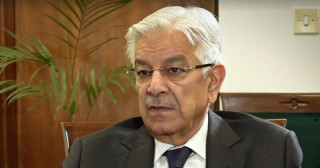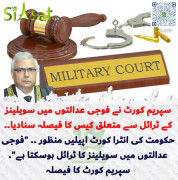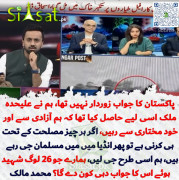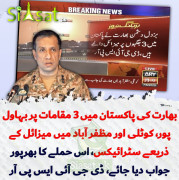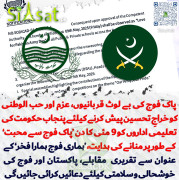hans
Banned
Muslims of Mohammedpur
What does a refugee do when one half of the country that has provided shelter and safety suddenly changes hands? The question gains seriousness when the move in the first instance was through a deliberate political choice at considerable physical risk and sacrifice. The question has defied an answer for almost half a million people for the past quarter century. They are the Biharis who, in December 1971, suddenly found themselves in a country they had not opted to join when they fled their former homes in India a generation earlier.
With the British withdrawal, the Indian subcontinent was partitioned in August 1947 into the independent state of India and the new country of Pakistan. Pakistan itself consisted of two physically separated wings: East Pakistan and West Pakistan, in both of which Muslims were in the majority. Partition caused a great upheaval and millions crossed over from one side to the other either in search of security and peace or to place themselves in an environment of their choice. These were not tidy transfers. They were accompanied by much killing and looting. One of the states severely hit by the riots was Bihar in India. A great many members of the Muslim minority in Bihar migrated to nearby East Pakistan. An enclave of Biharis formed just outside of the capital city of Dhaka in the township of Mohammedpur.
In December 1971, the eastern wing of Pakistan seceded to become the independent state of Bangladesh. The Urdu-speaking Biharis, who had emigrated to East Pakistan, suddenly found themselves in a new Muslim country with parts of their families left behind in West Pakistan or in India. In the 1971 fighting that accompanied the breakup of East and West Pakistan, India took over 90,000 Pakistani prisoners, who included civilians as well as military personnel. Almost two years later, Indian Prime Minister Indira Gandhi and Pakistani Prime Minister Zulfikar Ali Bhutto, the father of present Prime Minister Benazir Bhutto, signed the Simla Agreement and the POWs were returned to Pakistan. It was also agreed that arrangements would be made to transfer those Biharis left in Bangladesh who wanted to move to Pakistan. A great many of them expressed such a desire. However, to this date nothing of the kind has happened.
The logistics for transfer of more than 300,000 people were discussed for a long time among the governments of Bangladesh, India and Pakistan when the option being considered was over land across the 1,000 miles of Indian territory that separated Bangladesh from Pakistan. Once that option was dropped, India disappeared from the picture. The only course then open was to transport the stranded Biharis via sea. Years have passed working this out.
Several governments have come and gone both in Bangladesh and Pakistan. Other issues in the two countries have confused the question. It is feared, although not openly admitted, that once the now almost half a million Urdu-speaking Biharis are brought to Pakistan, they eventually will settle down in urban areas of Sindh, where other Urdu-speaking Mohajirs live. This could exacerbate an already strained situation between Mohajirs and the indigenous Sindhis. Then there is the question of the cost of the transfer.
Pros and Cons
The Biharis of Mohammedpur are an impoverished people who have no means to pay for their travel when and if it becomes possible. While the powers that be continue to debate the pros and cons of the issue, conditions among the Biharis who found themselves on the wrong side of the line a generation ago have gone from bad to worse. The International Red Cross, which for many years has tried to alleviate some of their problems, has issued several reports calling attention to the deteriorating condition of Mohammedpur. Still, after countless years, there is no political resolution of the transfer problem in sight. Meanwhile, the decline of living conditions endured by the Biharis continues.
My Dear Reader I ask only One question, Which group of people gain or profit from Fall of East Pakistan.
Hint: Quota system ...
Kindly do reply to this and voice your concern, before all is lost .. one should act NOW or sand and bleed for ever.
What does a refugee do when one half of the country that has provided shelter and safety suddenly changes hands? The question gains seriousness when the move in the first instance was through a deliberate political choice at considerable physical risk and sacrifice. The question has defied an answer for almost half a million people for the past quarter century. They are the Biharis who, in December 1971, suddenly found themselves in a country they had not opted to join when they fled their former homes in India a generation earlier.
With the British withdrawal, the Indian subcontinent was partitioned in August 1947 into the independent state of India and the new country of Pakistan. Pakistan itself consisted of two physically separated wings: East Pakistan and West Pakistan, in both of which Muslims were in the majority. Partition caused a great upheaval and millions crossed over from one side to the other either in search of security and peace or to place themselves in an environment of their choice. These were not tidy transfers. They were accompanied by much killing and looting. One of the states severely hit by the riots was Bihar in India. A great many members of the Muslim minority in Bihar migrated to nearby East Pakistan. An enclave of Biharis formed just outside of the capital city of Dhaka in the township of Mohammedpur.
In December 1971, the eastern wing of Pakistan seceded to become the independent state of Bangladesh. The Urdu-speaking Biharis, who had emigrated to East Pakistan, suddenly found themselves in a new Muslim country with parts of their families left behind in West Pakistan or in India. In the 1971 fighting that accompanied the breakup of East and West Pakistan, India took over 90,000 Pakistani prisoners, who included civilians as well as military personnel. Almost two years later, Indian Prime Minister Indira Gandhi and Pakistani Prime Minister Zulfikar Ali Bhutto, the father of present Prime Minister Benazir Bhutto, signed the Simla Agreement and the POWs were returned to Pakistan. It was also agreed that arrangements would be made to transfer those Biharis left in Bangladesh who wanted to move to Pakistan. A great many of them expressed such a desire. However, to this date nothing of the kind has happened.
The logistics for transfer of more than 300,000 people were discussed for a long time among the governments of Bangladesh, India and Pakistan when the option being considered was over land across the 1,000 miles of Indian territory that separated Bangladesh from Pakistan. Once that option was dropped, India disappeared from the picture. The only course then open was to transport the stranded Biharis via sea. Years have passed working this out.
Several governments have come and gone both in Bangladesh and Pakistan. Other issues in the two countries have confused the question. It is feared, although not openly admitted, that once the now almost half a million Urdu-speaking Biharis are brought to Pakistan, they eventually will settle down in urban areas of Sindh, where other Urdu-speaking Mohajirs live. This could exacerbate an already strained situation between Mohajirs and the indigenous Sindhis. Then there is the question of the cost of the transfer.
Pros and Cons
The Biharis of Mohammedpur are an impoverished people who have no means to pay for their travel when and if it becomes possible. While the powers that be continue to debate the pros and cons of the issue, conditions among the Biharis who found themselves on the wrong side of the line a generation ago have gone from bad to worse. The International Red Cross, which for many years has tried to alleviate some of their problems, has issued several reports calling attention to the deteriorating condition of Mohammedpur. Still, after countless years, there is no political resolution of the transfer problem in sight. Meanwhile, the decline of living conditions endured by the Biharis continues.
My Dear Reader I ask only One question, Which group of people gain or profit from Fall of East Pakistan.
Hint: Quota system ...
Kindly do reply to this and voice your concern, before all is lost .. one should act NOW or sand and bleed for ever.

